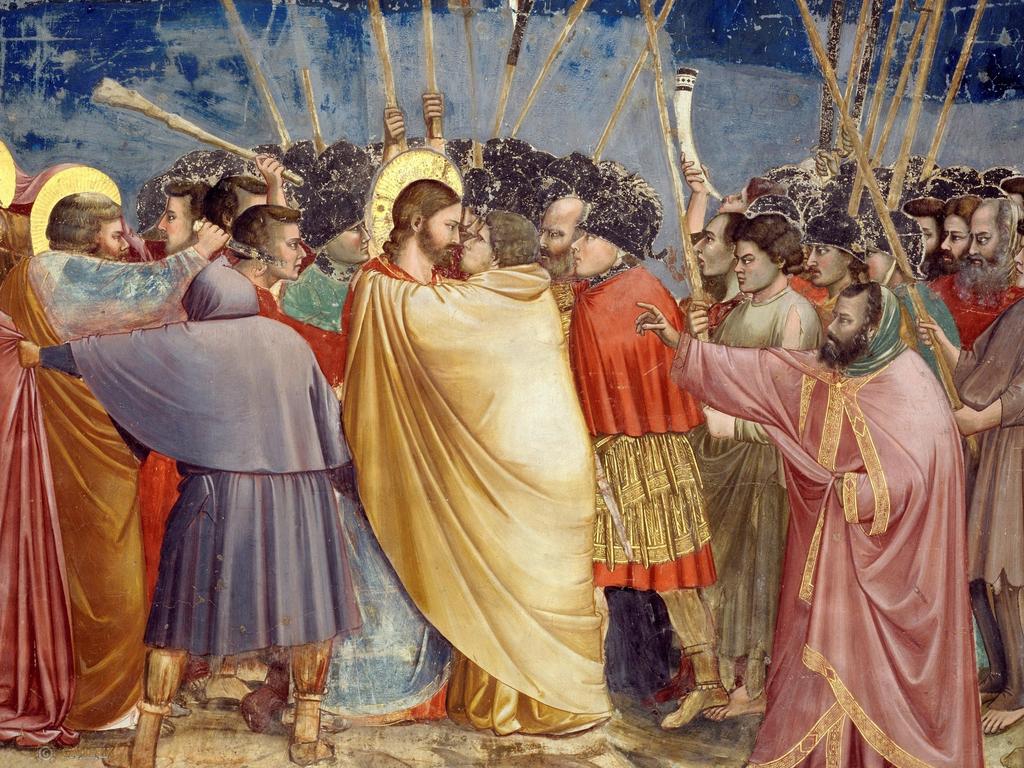To defend the West, defend Christianity

Legal academic Augusto Zimmermann, one of the contributors to my new book of essays, Christianity Matters in These Troubled Times, argues it’s no accident the preamble to the Australian Constitution contains the phrase “humbly relying on the blessing of Almighty God” and parliaments begin with the Lord’s Prayer.
The West’s legal and political systems, traced back to the Magna Carta, the Glorious Revolution and William Blackstone’s Commentaries on the Laws of England, are deeply imbued with Christian morals including the inherent dignity of the person, the inalienable right to liberty and freedom, and the need to commit to social justice and the common good.
As evidence, Zimmermann writes: “St Paul counsels to ‘stand fast therefore in the liberty wherewith Christ hath made us free’ (Gal. 5:1). St Paul also states, ‘There is neither Jew nor Greek, there is neither bond nor free, there is neither male nor female: for ye are all one in Christ Jesus’ (Gal.3:28). Statements like these had a profound impact on the development of democracy and human rights.”
Ignored by extreme secular critics, the campaign to abolish the slave trade was led by a Christian, William Wilberforce.
Martin Luther King Jr’s famous “I Have a Dream” speech, given in 1963, was inspired by his Christian teachings and faith: “I have a dream that one day every valley shall be exalted, every hill and mountain shall be made low, the rough places will be made plain, and the crooked places will be made straight, and the glory of the Lord shall be revealed, and all flesh shall see it together.”

Such is the Bible’s admonition to serve others and to do good that Australia’s social welfare, education, health and aged-care systems would collapse without Christian bodies and organisations.
Christian schools enrol about 34 per cent of students, and charities such as the Brotherhood of St Laurence and Caritas care for millions of disadvantaged and underprivileged people here and overseas. Christian aged-care facilities and hospitals are an integral part of the nation’s social and health infrastructure.
Australian literary critic Peter Craven makes the point in the book that much of the West’s art, music and literature can be fully appreciated and understood only in the context of the Bible and Jesus’ teachings and time on this earth.
After detailing Christianity’s influence on writers including Dante, Shakespeare, Dostoevski, James Joyce and Australian poet Les Murray, Craven leaves readers in no doubt about the central importance of religious concepts such as faith and redemption, temptation and sin, and the incessant search for spiritual comfort in an often confronting and hostile world.
Craven writes: “The New Testament is part of the air we breathe and may it ever be.
“When we stare at the Sistine Chapel ceiling or listen to Mozart’s Requiem or his Coronation Mass we are not experiencing the rhetoric of a religious vision but an essence where beauty and truth are at one.”
Notwithstanding Christianity’s enduring benefit to Western societies, as Sydney-based psychologist Wanda Skowronska argues in an essay, Christianity is suffering an unprecedented attack by what Catholic Archbishop of Sydney Anthony Fisher describes as “absolutist secularism”.
This is a multifaceted ideology involving neo-Marxist-inspired political correctness that can be traced back to the cultural revolution of the late 1960s, the emergence of Germany’s Frankfurt School in the 1920s and before then the French Revolution, and the writings of German philosopher Friedrich Nietzsche.
Common to all is the idea that religion must be abolished, there is no place for a spiritual and transcendent view of the world, and that it’s possible to build a man-made utopia on this earth.
As Italian philosopher Augusto Del Noce noted, unlike Christianity, which is inherently moral, absolutist secularism and ideologies including communism and fascism are without morality as the end justifies the means.
“There are no moral limitations to revolutionary action,” Del Noce wrote: “Hence, every kind of violence, every ruse, every illegal action, every dissimulation, and every deception become licit if they are deemed to reach the goal.”
Whether it’s Russian President Vladimir Putin’s invasion of Ukraine, Chinese President Xi Jinping’s campaign to achieve global hegemony, or fundamentalist Islam, there’s no denying Western nations such as Australia are facing an existential threat. Add the woke attack on Christianity from within and it’s obvious deeply troubling times are ahead.
Such threats to the West’s peace and stability, if they are to be met and countered, will require a renewed acceptance of Christianity as one of the defining features of Western society. As British author and political commentator Douglas Murray argues in his book The Strange Death of Europe, to do otherwise is cultural and spiritual suicide.
Especially at Easter time, when Christians celebrate the crucifixion and resurrection of Jesus, it is vital to remember not all is nihilistic and destructive, and that renewal and redemption are possible with God’s love and grace.
Kevin Donnelly is a senior fellow at the Australian Catholic University’s PM Glynn Institute. He also is the editor of a collection of essays, Christianity Matters in These Troubled Times, recently published by Wilkinson Publishing.




With Easter approaching, it’s timely to argue why, for all its sins, Christianity must be defended and acknowledged as one of the foundation stones underpinning Western civilisation and the reason citizens in the West, compared with millions suffering around the world, enjoy such liberty, prosperity and freedom.